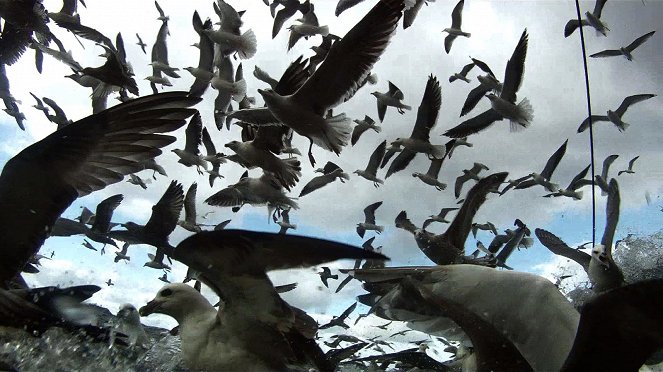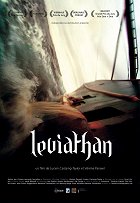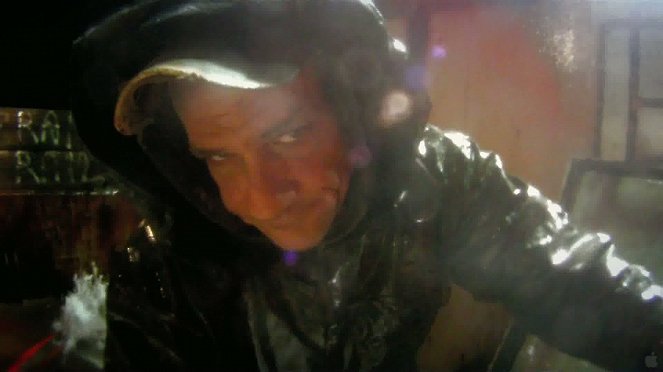Acteurs·trices:
Régis Royer, Éric Berger (narrateur), Mathurin Voltz, Christian Gonon, Nathan GabilyRésumés(1)
En embarquant sur un chalutier pour dresser le portrait d'une des plus vieilles entreprises humaines, Véréna Paravel et Lucien Castaing-Taylor témoignent, dans un flot d'images sidérant, de l'affrontement qui engage l'homme, la nature et la machine. Tourné à l'aide d'une dizaine de caméras numériques ballottées au gré du vent et des vagues, sanglées aux corps des pêcheurs, aux cordages du bateau, gommant tous repères, et où la mer et le ciel finissent par se confondre, ce documentaire nous avertit des menaces de la pêche intensive autant qu'il révèle la beauté foudroyante des entrailles de l'océan. (texte officiel du distributeur)
(plus)Vidéo (1)
Critiques (2)
Something like Gravity, though not just like a fictional feature film, but a “documentary”, and not in space, but at sea. An engrossing movie experiment that made me sway; I felt soaked to the bone and I think I will smell fish until tomorrow. If it was 15 minutes long, I would rate it differently, but, with feature film length, experimental games like this are not fun.
()
Leviathan is a new level of cinéma verité, with a camera that goes everywhere and for which animals (dead and alive) are as equally fascinating to observe as people, giving immediacy and closeness priority over clarity and comprehensibility. We are thrown onto the boat just like the fish that have been caught and, like them, it takes a moment for us to realise what has happened and where we are. By leaving us to grope (in the dark) for an understanding of what we are actually watching, the film quite emphatically shows for the first time and not the last time, that it is indifferent to viewers' comfort. Despite that, it is at times as comparably an immersive experience as playing a video game. Here, however, we cannot influence anything, but can only be dragged further and further on by an oceangoing monster that devours weaker creatures. In its raw animalism, Leviathan goes even further than, for example, Le Sang des bêtes, in not only showing us the blood and entrails, but also bathing us in them several times. The perception of a fishing boat as a giant organism, of which anonymous sailors are integral parts (most aptly in the image of the merger of man and machine shot through glass), corresponds to the inverted chronology of the scenes, where we first see the attendant characteristics of a certain activity and only then the activity itself. Regardless of how little it may reveal about a particular activity, any given shot completes the portrait of the central sea monster. However, when removed from the whole, numerous scenes can be captivating due to their visual qualities. You do not have to engage your imagination too much to see apocalyptic paintings by Blake or Goya in some shots. It seems that extinction is already underway and is just as unstoppable as the leviathan, whose constant movement is evidence of its tirelessness and an assertion of inevitability. Despite many viewings of the BBC’s nature documentary series, it is only after this film, which uncompromisingly rips away the veil of appealing BBC aesthetics, that I can say that I have been on a fishing trip. I do not want to go again. 80%
()
Photos (8)
Photo © Cinema Guild



Annonces